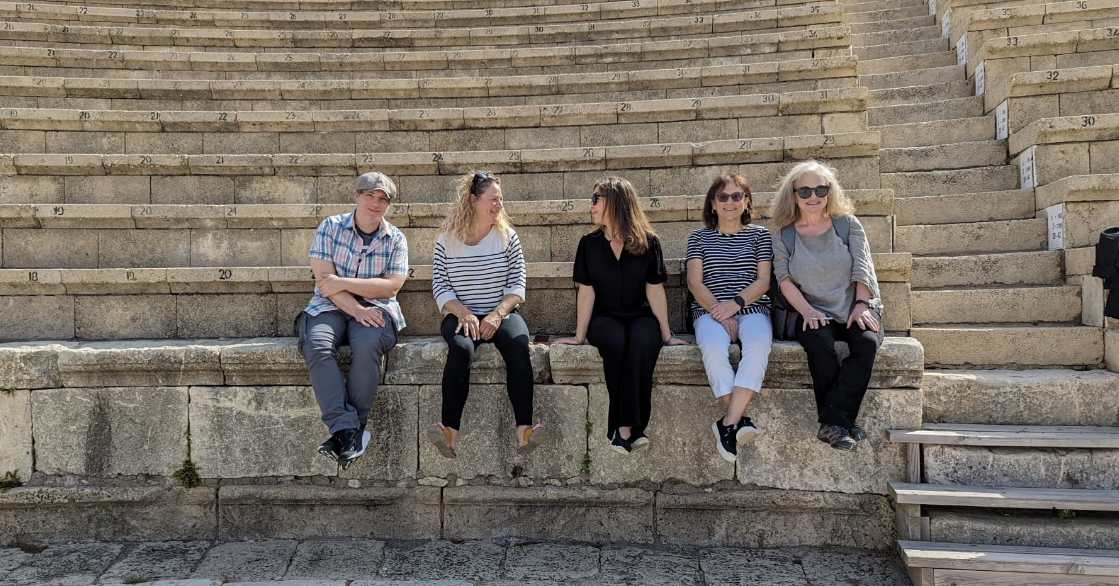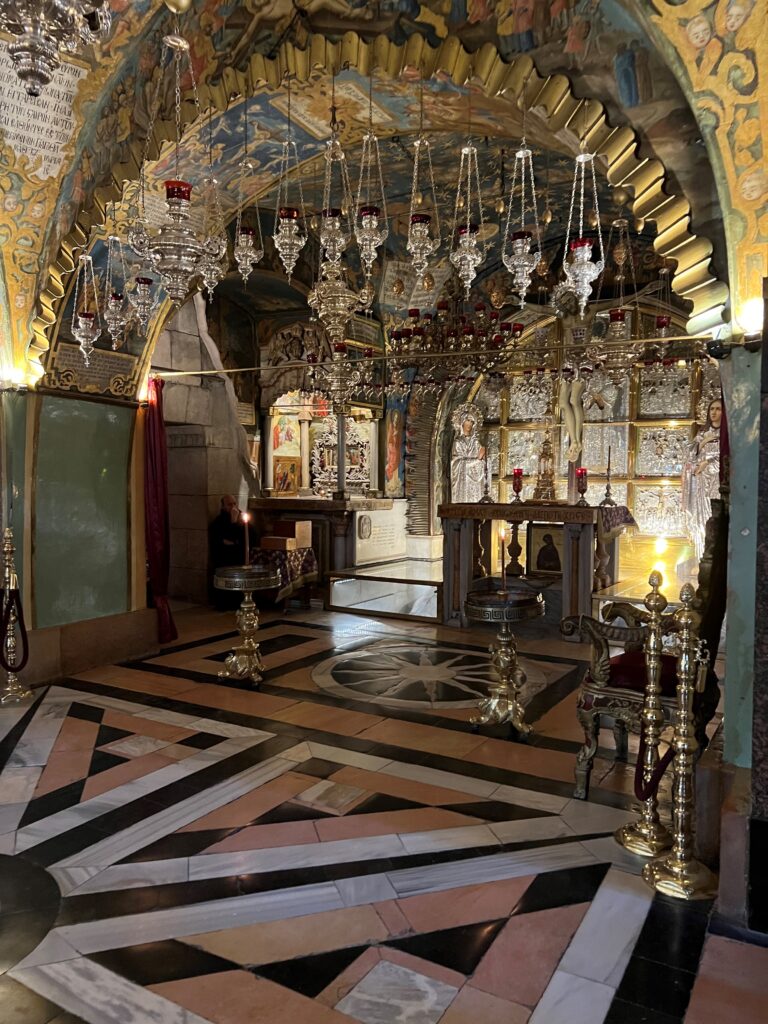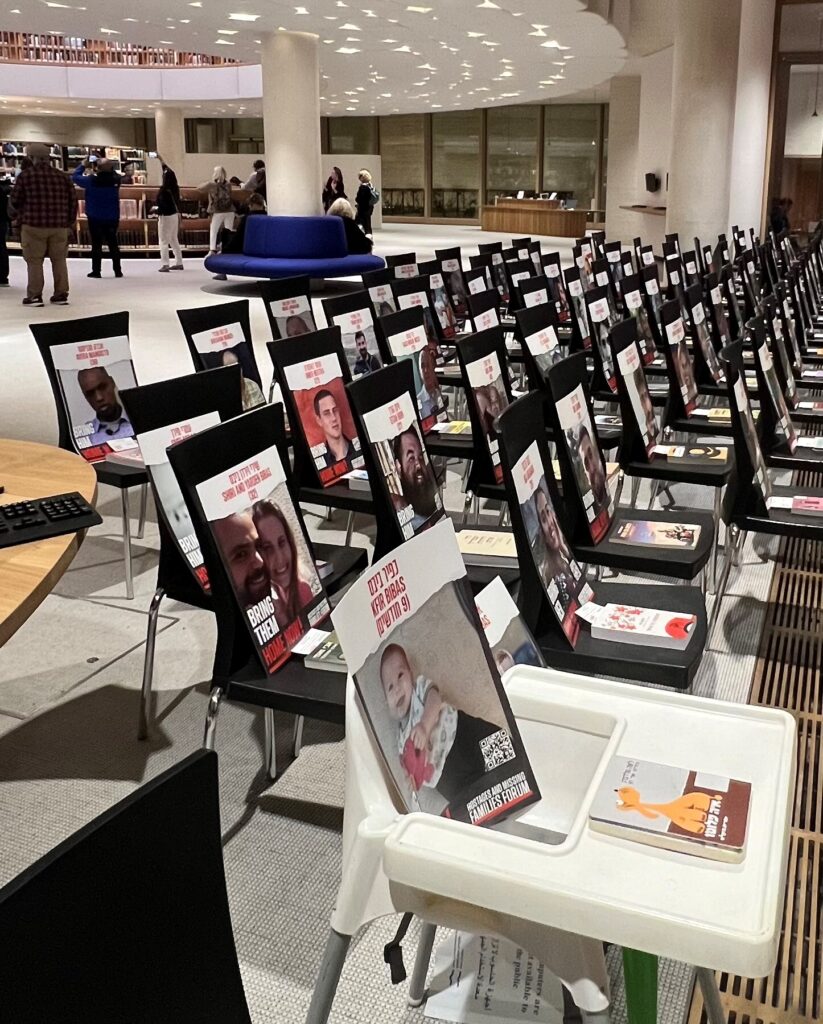Jerusalem — Maybe it’s because I respect war correspondents, who risk their lives to cover the story, and sometimes wish I was one. Maybe it’s because, since Covid, I appreciate the privilege of being among the first visitors to support a tourism industry in distress. Maybe it’s because my roots are here, in the only place on earth where Jews are not a minority.
Or maybe I’m just another Baby Boomer looking for a “safe adventure,” excited to push the boundaries and get my heart pumping a little, all the while knowing I really am likely to survive unscathed.
It was all of the above, really, that pushed me to accept an invitation to join the first small group of trade reporters to visit Israel since the terror attacks in October, to attend the International Mediterranean Tourism Market Expo in Tel Aviv.
“It’s not time to sell Israel; it’s time to sell planning Israel,” Pini Shani, deputy director general of the Israel Ministry of Tourism, told me as we tried to find a quiet corner in the bustling convention center. “We know it’s challenging. But we want Israel to still be on the calendar. Because when things calm down people will come back, as they did after Covid. It’s only a matter of time.”

Indeed, he added (just a week before a barrage of rockets flew overhead—but for which Iran offered days of advance warnings), “we obviously wouldn’t take a risk if we didn’t feel you would be safe.” And honestly, I did feel safe. Walking in the footsteps of Caesar, Herod, Abraham, Joshua, Jesus, and Mohammed is so captivating that you forget the dangers of this most valuable and fought-over piece of real estate in the world. On the ancient cobblestone streets that have connected the trade routes of Europe and Asia and Africa since the beginning of time, and in the luxury hotels and amazing restaurants that have sprouted in the hills and the desert since Israel was born in 1948, you feel far removed from the troubles of this tiny country.
It’s only a matter of time, Shani said. Meanwhile, for the brave and the adventurous and the committed and the religious who already are headed this way, the tourism industry is ready. The hotels are full this week before Passover, though many of the guests are evacuees from the kibbutzim up north, where the rockets still fall regularly, or survivors of the hostage-taking in October. The Easter and Passover influx of international tourists has “obviously been weak,” Shani acknowledges, and so are bookings for 2024.
So what exactly does he want me to tell potential tourists and their travel advisors, I ask. “I want you to say the country is open and alive and safe, and hopefully soon it will be over,” he says. “Tourists can walk around and have a wonderful time here. And we need them to come. We really need them to come.”
On the trade show floor, Dan Benjoseph of D&M Global Travel, which specializes in the Middle East but also serves Africa, Asia and Eastern Europe, said the hostage-taking “has woken up the Jewish market, and especially the non-religious Jewish market, which was saturated after Covid. Now they are coming on solidarity missions. But the general public will take a while to return to Israel and to Egypt and to Morocco. I’d say start planning for 2025. Israel is safe and, apart from five miles from the border, there are very few places you cannot go.”
Indeed, he said, he is planning a fam trip for January—or if things go well, “maybe even in the fall.”
Meanwhile, the suppliers at the show agreed, the Israeli tourism infrastructure is “Building for the Day After,” whenever that will be and whatever it will follow. Like during Covid, they are using the down time to spruce up their offerings, reorganize their itineraries, “build new trails from the mountains to the sea, so people will be wowed by the beauty of this amazing country when they come back.”
“It’s amazing to be in Israel right now,” said Ellen Shapiro, director of PR for North America at the Israel Ministry of Tourism, our escort for the trip. It’s a very hard time for the Israelis—but American Jewish travelers who have never been to Israel before are coming now to show support; “it’s incredible and inspiring and means so much to both those who are visiting and to the people of Israel,” she said.
And much like in those first days after Covid, guests feel an added layer of gratitude on top of the traditional hospitality that has served the Middle East well since Abraham invited the angels into his tent.
“It’s so nice to see tourists again,” breathed our hostess at the beautiful Castell Winery outside Jerusalem, noting that “everywhere you look in the Judean Hills you see grapes. The rich wine culture here goes back 3,000 years.”
When the kibbutzim in the north were evacuated in October, Castell invited its competitors from that region to bring their wine and sell it here.
“Everything is sweet and sour,” she said. “It’s business as usual, but it’s not usual. But there are beautiful things happening since [the hostages were taken on] October 7. People are working together and helping each other.”
“It’s really exciting to be practicing our English again,” says our guide as we walk the ramparts of the wall that surrounds the Old City of Jerusalem. “Despite the war, you do have to make dinner reservations every night or you won’t get in.”
Still, tourism now is more FIT than groups, they say; visitors average 3.8 nights in Jerusalem and then at least 3 or 4 more in Tel Aviv and other cities. (We spent two nights in Jerusalem and five in Tel Aviv.) But “Jerusalem is not a war zone. When you walk the streets, you feel safe. And when the war ends, it will not take long to recover,” Shapiro agrees.
At the opening ceremony of the new National Library, meanwhile, in front of a moving display of empty chairs with photos of the hostages and their favorite books, Jerusalem mayor Moshe Leon addressed the reporters in the crowd. “I know you have found here a community, a people who are determined to break down barriers and build a future of peace,” he said. “We hope you will take that message of peace home. And we look forward to welcoming you and your readers back to Jerusalem very soon.”


At Passover seders around the world this week, Jews will read the story from the Book of Exodus, of how Moses led our forefathers out of slavery in Egypt and brought us home to Israel, at a date scholars estimate to be in the 16th century BCE. As every year, we all will repeat the ancient prayer, “Next year in Jerusalem.”
Now they are just praying that, in 2025, they once again will see international tourists headed this way.
If you are looking for details of our itinerary, tales of the amazing places and properties we visited, and suggestions for excursions, stay tuned right here next week for the scoop.

Cheryl’s 40-year career in journalism is bookended by roles in the travel industry, including Executive Editor of Business Travel News in the 1990s, and recently, Editor in Chief of Travel Market Report and admin of Cheryl Rosen’s Group for Travel Professionals, a news and support group on Facebook. As an independent contractor since retiring from the 9-to-5 to travel more, she has written regular articles about the life and business of travel agents for Luxury Travel Advisor, Travel Agent, and Insider Travel Report. She also writes and edits for professional publications in the financial services, business, and technology sectors.



